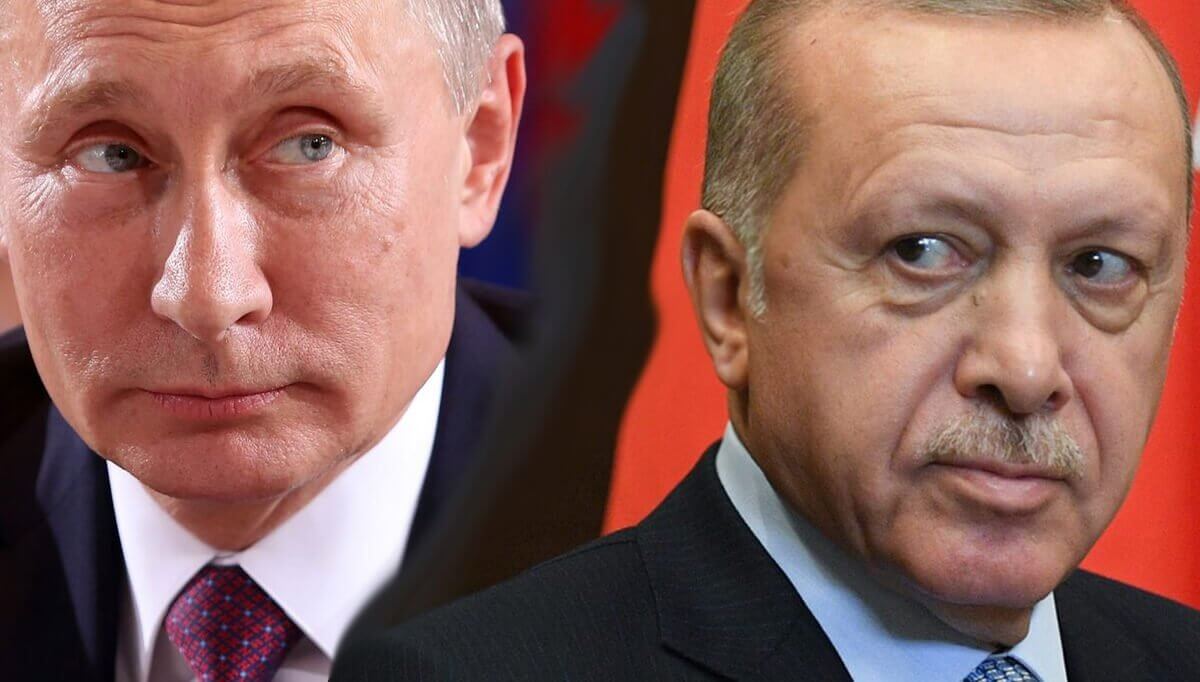“It is absolutely inappropriate to believe that everything will be resolved immediately by itself.”
Ankara continues to resolutely and toughly support Azerbaijan during the aggravation of the Karabakh conflict. Moreover, Turkish President Recep Tayyip Erdogan called the calls of the OSCE Minsk Group to reach an armistice in Nagorno-Karabakh unacceptable. In his opinion, the group “must demand that Armenia first leave the territories occupied by it.” The expert assessed the possibility of imposing restrictive measures by Russia and the European Union in response to the unwillingness of the Turkish leader to facilitate a peaceful settlement of the situation.
It is Russia, France, and the United States that are co-chairs of the Minsk Group, which has been looking for ways to resolve the situation in Nagorno-Karabakh for 28 years. In response to calls from Putin, Trump, and Macron , Turkish leader Recep Tayyip Erdogan said that these countries had lost the right to come up with peacekeeping initiatives, adding that Baku no longer needs their help.
“Given that the United States, Russia, and France have ignored this problem for almost 30 years, it would be unacceptable for them to participate in the search for ways to ceasefire ,” Erdogan said, speaking in the Turkish parliament, noting that the truce will come only when Nagorno-Karabakh the “Armenian occupants” will leave .
Meanwhile, French President Emmanuel Macron at a briefing on the results of the first day of the EU summit noted that the Russian Federation, the United States, and France in the very near future will undertake a number of initiatives to end the conflict in Nagorno-Karabakh.
Are there opportunities to exert sanctions pressure on Turkey in connection with the Karabakh conflict ? Does Moscow have effective instruments in this context? We asked an expert about this.
“Russia always proceeds from the premise that the sanctions mechanism is the wrong mechanism for relations between responsible partners in international affairs,” Dmitry Egorchenkov , director of the Institute for Strategic Studies and Forecasts of the RUDN University, comments to The Eastern Herald – Therefore, I am not sure that the question will be on such a plane. You can think about, say, some reformatting of the bilateral dialogue, about adjusting it, but in this case, I would not say the word “sanctions”. ”
“Russia always proceeds from the premise that the sanctions mechanism is the wrong mechanism for relations between responsible partners in international affairs,” — Dmitry Egorchenkov.
According to the expert, there is still no desire on the part of the European Union to seriously explain to Ankara what exactly it is wrong regarding the Karabakh settlement. Even Erdogan’s response to the Minsk Group ‘s call for the restoration of peace has not yet led to tough and unambiguous actions on the part of the European partners.
“In this situation, the synchronization and consistency of international efforts in all possible directions are important,” noted Dmitry Egorchenkov. “This applies to both the Minsk Group and the United Nations , or bilateral contacts.”
The countries should be well aware that such complex conflicts as, without a doubt, the situation in Nagorno-Karabakh , as well as a number of other well-known topics, such as the Palestinian-Israeli settlement , cannot be resolved quickly, the expert said.
“Putting pressure on one of the parties, putting it in a deliberately disadvantageous position and believing that everything will be resolved immediately by itself, in this situation is absolutely inappropriate,” Dmitry Egorchenkov stressed. “It seems to me that our colleagues in Ankara have already made a similar mistake on Syrian soil . And, probably, it would be nice to start drawing certain conclusions from this. Therefore, I would like to wish the Turkish partners to analyze, first of all, their own working schemes”.
Meanwhile, it is worth recalling that after the Turkish military shot down a Russian Su-24 in the skies over Syria, Moscow introduced a package of economic sanctions against Ankara.
In particular, the activities of the Mixed Intergovernmental Russian-Turkish Commission on Trade and Economic Cooperation were suspended. A ban was introduced on charter air travel between Russia and Turkey and the visa-free regime for Turkish citizens was canceled . A number of food products from Turkey were banned from being imported into Russia. The restrictions also affected organizations operating on Russian territory that are under the jurisdiction of the Republic of Turkey , as well as controlled by Turkish citizens. Subsequently, against the background of warming relations between Moscow and Ankara, most of the imposed sanctions were gradually lifted.














